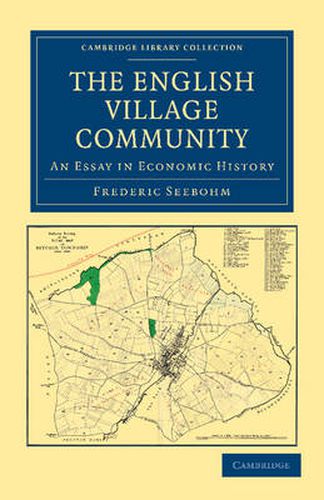Readings Newsletter
Become a Readings Member to make your shopping experience even easier.
Sign in or sign up for free!
You’re not far away from qualifying for FREE standard shipping within Australia
You’ve qualified for FREE standard shipping within Australia
The cart is loading…






The Yorkshire-born barrister, banker and economic historian Frederic Seebohm (1833-1912) first came to attention with his work on the Reformation intellectuals Colet, Erasmus and More. In this work, first published and then reissued in 1883, Seebohm’s focus is on the agrarian history of medieval England, with special reference to problems of early land tenure and the social system that developed from it. Seebohm stresses the continuity between Roman settlement and English villages, and he regards the manor, whose lands were cultivated by serfs, as the original form of landed property among the Anglo-Saxons and other Germanic peoples. He was the first British historian to provide a detailed description of the structure and economic life of the large manor, based on the unpaid labour of the serfs, and of the relations between the manor and the community. The book remains an influential treatment of the feudal system.
$9.00 standard shipping within Australia
FREE standard shipping within Australia for orders over $100.00
Express & International shipping calculated at checkout
The Yorkshire-born barrister, banker and economic historian Frederic Seebohm (1833-1912) first came to attention with his work on the Reformation intellectuals Colet, Erasmus and More. In this work, first published and then reissued in 1883, Seebohm’s focus is on the agrarian history of medieval England, with special reference to problems of early land tenure and the social system that developed from it. Seebohm stresses the continuity between Roman settlement and English villages, and he regards the manor, whose lands were cultivated by serfs, as the original form of landed property among the Anglo-Saxons and other Germanic peoples. He was the first British historian to provide a detailed description of the structure and economic life of the large manor, based on the unpaid labour of the serfs, and of the relations between the manor and the community. The book remains an influential treatment of the feudal system.